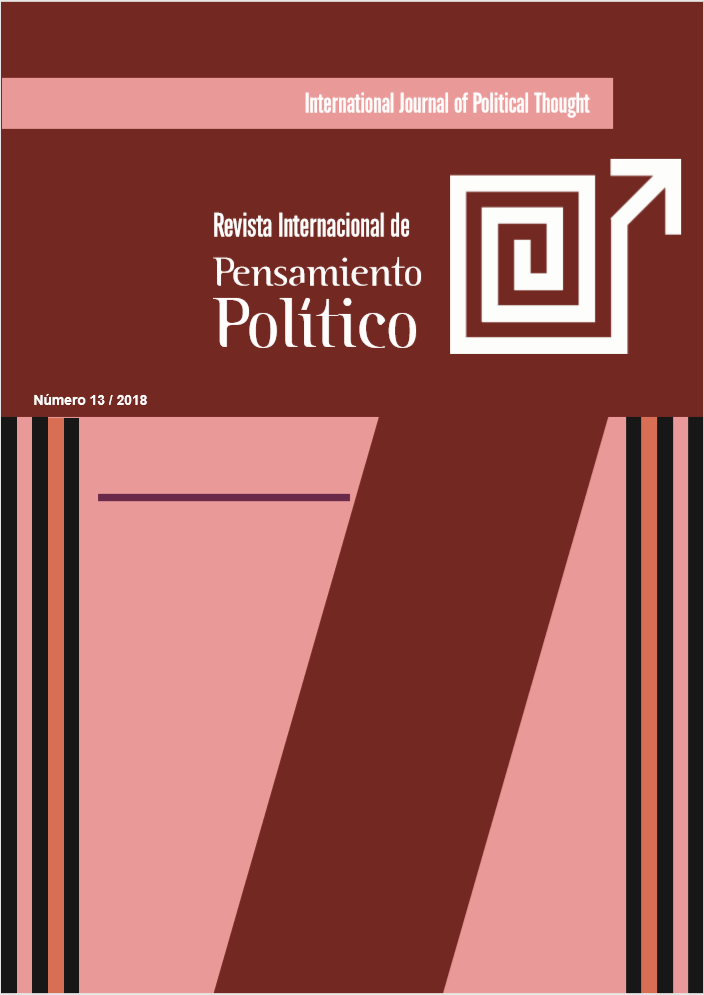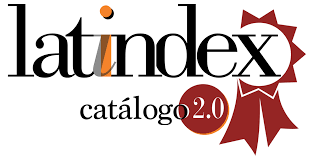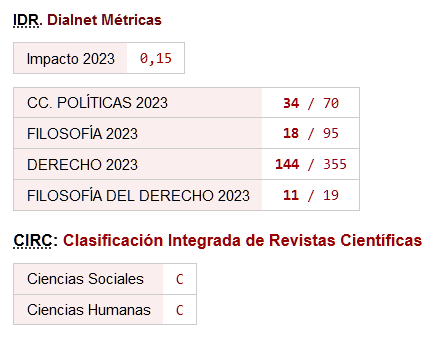Los derechos de propiedad de la mujer en la región mena
DOI:
https://doi.org/10.46661/revintpensampolit.4088Keywords:
MENA, self-property, legal barriers, women, property rights,Abstract
The present article is aimed at analyzing the situation of women’s property rights in the MENA region on the basis of a “comprehensive” definition of property rights. It identifies and illustrates the obstacles that undermine women’s access to property, especially from a legal perspective, how they interplay with one another, and suggests possible venues for change.
Downloads
References
Alchian A. (2008) Property Rights. Liberty Fund: Library of Economics & Libert. Retrieved from, http://www.econlib.org/library/Enc/PropertyRights.html
Bush R. (2004) Civil Society and the Uncivil State Land Tenure Reform in Egypt and the Crisis of Rural Livelihoods. United Nations Research Institute for Social Development: Switzerland
Center On Housing Rights and EvictionsCOHRE (2006) In Search of Equality. A survey of law and practice related to women’s inheritance rights in the Middle East and North Africa (MENA) Region. Geneva, Switzerland
Department of Statistics [Jordan] and ICF International (2013) Jordan Population and Family Health Survey 2012. Calverton, Maryland, USA: Department of Statistics and ICF International https://dhsprogram.com/pubs/pdf/FR282/FR282.pdf
Deutsche Gesellschaft für Internationale Zusammenarbeit Germany -GIZ(2014). Retrieved from, https://www.giz.de/en/downloads/giz2014-en-regional-youth-savingsinitiative.pdf
Food and Agriculture Organization of the United Nations -FAO(2018) Gender and Land Rights Database. Retrieved from, http://www.fao.org/gender-landrights-database
Gwartney J., Lawson R. & Hall J. (2018) Economic Freedom of the World: 2018 Annual Report. Canada: Fraser Institute
Gwartney J., Lawson R. & Hall J. (2014) Economic Freedom of the World: 2014 Annual Report. Canada: Fraser Institute
Hacettepe University Institute of Population Studies (2003) Turkey Demographic and Health Survey, 2003. Hacettepe University Institute of Population Studies, Ministry of Health General Directorate of Mother and Child Health and Family Planning, State Planning Organization and European Union. Ankara, Turkey (http://dhsprogram.com/pubs/pdf/FR160/FR160.pdf)
Haut Commissariat au Plan HCP -Morocco(2016) La Femme Marocaine en Chiffres [Moroccan Women in Numbers] Haut Commissariat au Plan: Rabat
International Monetary FundIMF (2013), Arab Policy Forum on Financial Inclusion: Addressing Challenges of Financial Inclusion in the Arab WorldA speech by Masood Ahmed. Retrieved from, http://www.imf.org/external/np/speeches/2013/121013.htm
Locke J., Of Property, Book II Chapter 5.
Making Finance Work for Africa-MFW4A(2018) Gender and Finance. Retrieved from, http://www.mfw4a.org/gender-and-finance/gender-and-finance.html
Ministry of the Interior (2012) Ethnic Collectivities and Collective Land, Retrieved from http://www.terrescollectives.ma/Pages/ar/question-femme.cshtml
Ministry of Public Health and Population (MOPHP), Central Statistical Organization (CSO) [Yemen], Pan Arab Program for Family Health (PAPFAM), and ICF International (2015). Yemen National Health and Demographic Survey 2013. Rockville, Maryland, USA: MOPHP, CSO, PAPFAM, and ICF International. https://dhsprogram.com/pubs/pdf/FR296/FR296.pdf
O’Driscoll Jr & Hoskins (2003) Property Rights: The Key to Economic Development. Policy Analysis No. 482, Cato Institute: Washington DC
Property Rights Alliance (2015) International Property Rights IndexGender (IPRI-GE). Unpublished data retrieved directly from the Organization
Rockefeller Foundation (2013) Decision Intelligence Document Women’s Insecure Property Rights. Retrieved from, https://www.rockefellerfoundation.org/app/uploads/Womens-Insecure-PropertyRights.pdf
UNESCO Institute for Statistics (2012 ) Adult and Youth Literacy, 1990-2015: Analysis of data for 41 selected countries. Canada: UNESCO Institute for Statistics
World Bank (2011) World Development Report 2012: Gender Equality and Development. Washington, DC: World Bank.
World Bank (2012) SMEs for Job Creation in the Arab World: Access to Financial Services. Washington, DC: World Bank.
World Bank (2013a) Jordan Country Gender Assessment: Economic Participation, Agency and Access to Justice in Jordan. Report No. ACS5158. Washington, DC: The World Bank.
World Bank (2013b) Opening Doors: Gender Equality and Development in the Middle East and North Africa. MENA Development Report. Washington, DC: World Bank.
World Bank (2013c) Projet de Renforcement de la Micro-Finance chez les Femmes et les Jeunes dans la Région MENA [Project to strengthen microfinance for women and youth in the MENA region] Retrieved from, http://wwwwds.worldbank.org/external/default/WDSContentServer/WDSP/IB/2013/10/17/000333037_20131017105424/Rendered/PDF/787450PJPR0P140Box0 379848B00PUBLIC0.pdf
World Bank (2013d) Jobs for Shared Prosperity: Time for Action in the Middle East and North Africa. Washington, DC: World Bank.
World Bank (2014) Expanding Women’s Access to Financial Services. Retrieved from, http://www.worldbank.org/en/ results/2013/04/01/banking-on-womenextending-womens-access-to-financialservices
World Bank (2018) Women, Business & the Law 2018. Retrieved from, https://wbl. worldbank.org/
Downloads
Published
How to Cite
Issue
Section
License

This work is licensed under a Creative Commons Attribution-NonCommercial-ShareAlike 4.0 International License.
Open access policy
Free and open access is allowed to any interested party to all the contents of the journal issues, free of charge, being able to print and transfer all the articles, with the only condition of specifying the source and authorship.
The journal: a) does not charge authorship costs for the processing of articles or for their submission, b) maintains copyright for authors without restrictions, c) facilitates authors to keep their publication rights without limitations.
The International Journal of Political Thought is an original work of the Laboratory of Political Ideas and Practices of the Pablo de Olavide University. All articles included in the Journal are original work of their respective authors. This Journal is freely offered to the scientific and academic community at no cost and releases the contents according to the license "Attribution-NonCommercial-ShareAlike 4.0 CC BY-NC-SA" of the Creative Commons project available in the following url: https://creativecommons.org/licenses/by-nc-sa/4.0/legalcode
If you wish to translate or compile any of the articles available here, please contact us at contacto












 ISSN: 1885-589X
ISSN: 1885-589X  Universidad Pablo de Olavide
Universidad Pablo de Olavide